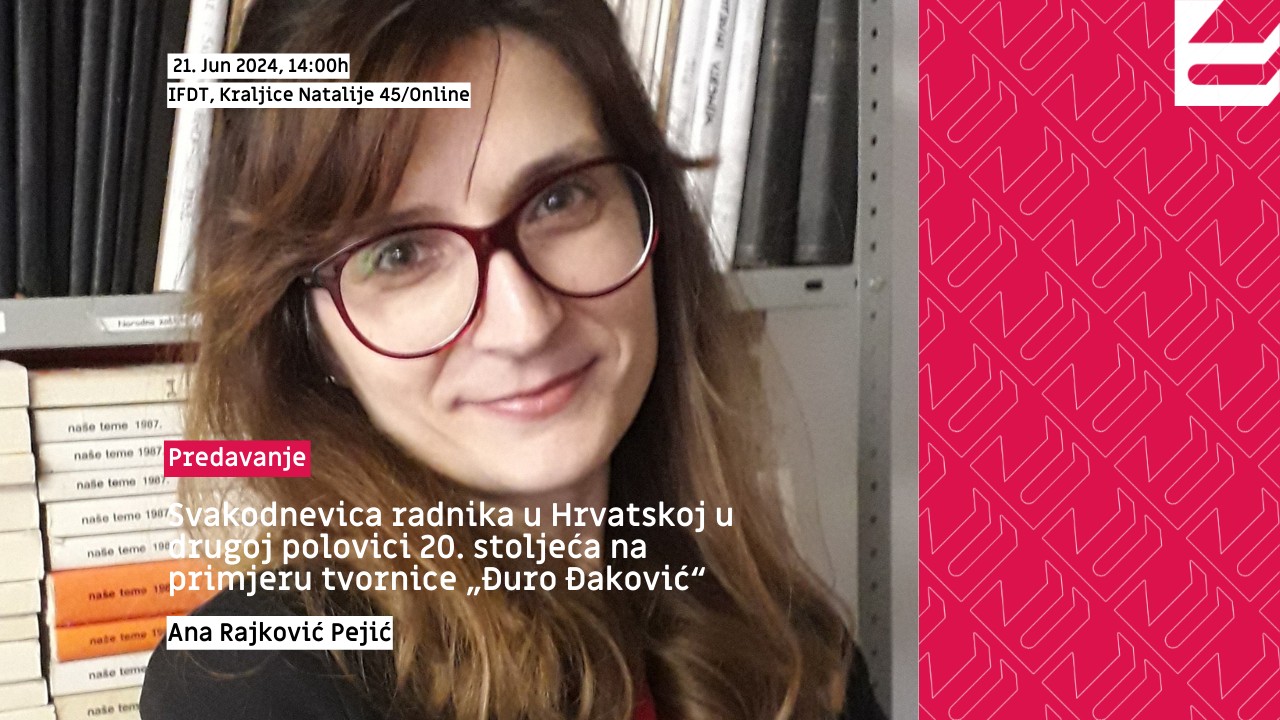
[Lecture] Everyday life of factory “Đuro Đaković” workers in Croatia in the second half of the 20th century (YugoLab)
Everyday life of factory “Đuro Đaković workers in Croatia in the second half of the 20th century. The topic of factory “Đura Đaković” will be discussed in the broader context of socialist factories, as a social system that, among other things, contributed to the development of housing, cultural activities and consumer society. Namely, the factories, including “Đuro Đaković” represented “centers for social redistribution, through which workers across the country could access educational training, cultural associations and social welfare services such as canteens and health care”.
In this sense, “Đuro Đaković”, as one of the largest industrial plants of socialist Yugoslavia, which participated in the construction of a number of factory complexes around the world (Ethiopia, Sudan, Libya, East Germany) and, following political non-alignment, cooperated with American and Belgian companies, represents a case study for the analysis of the work of factories as social sectors within which workers had access to health centers, restaurants, opportunities for sports and recreation. Factories will be therefore discussed as “social buffers” which created new social practices that influenced the creation of a happy and satisfied worker.
